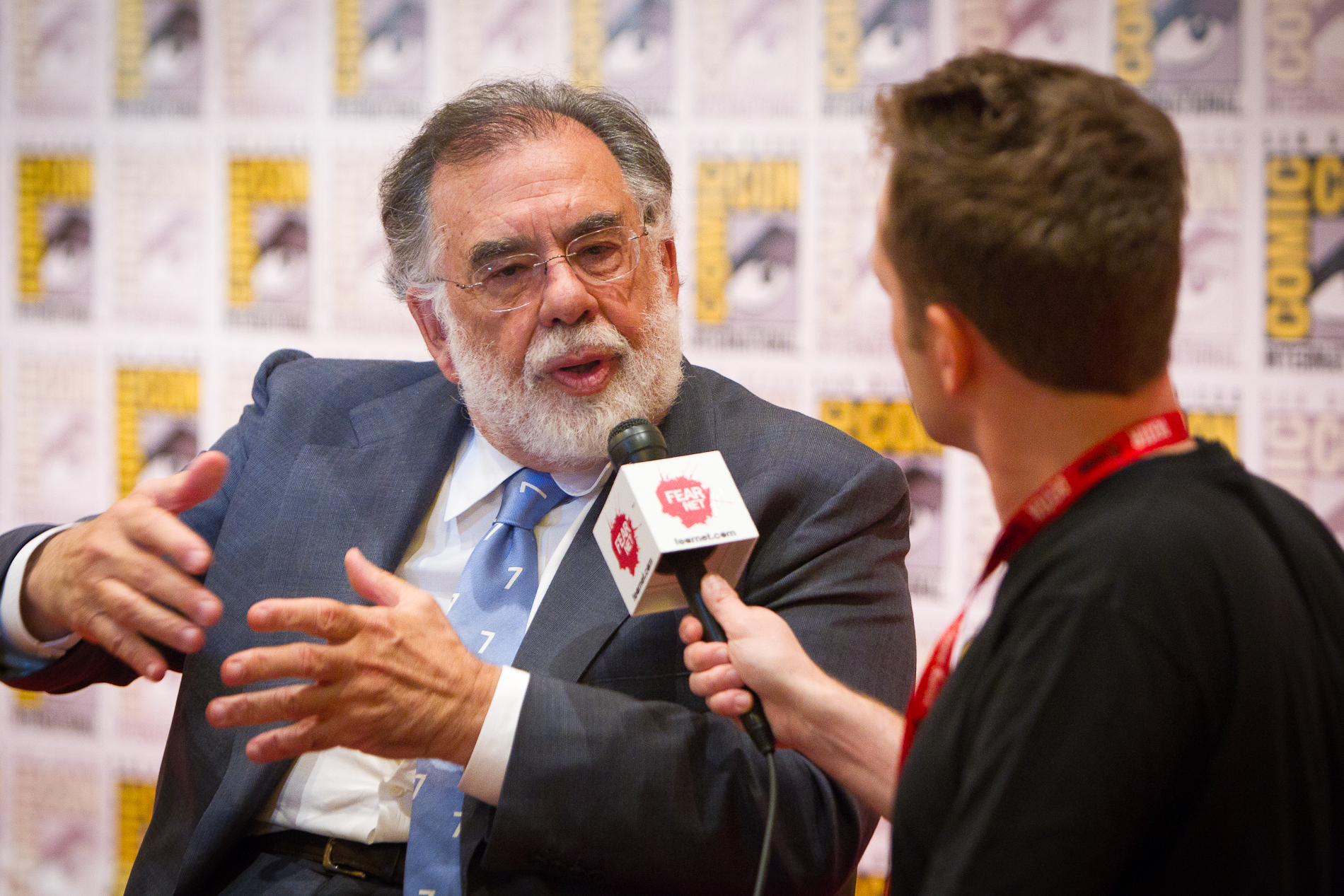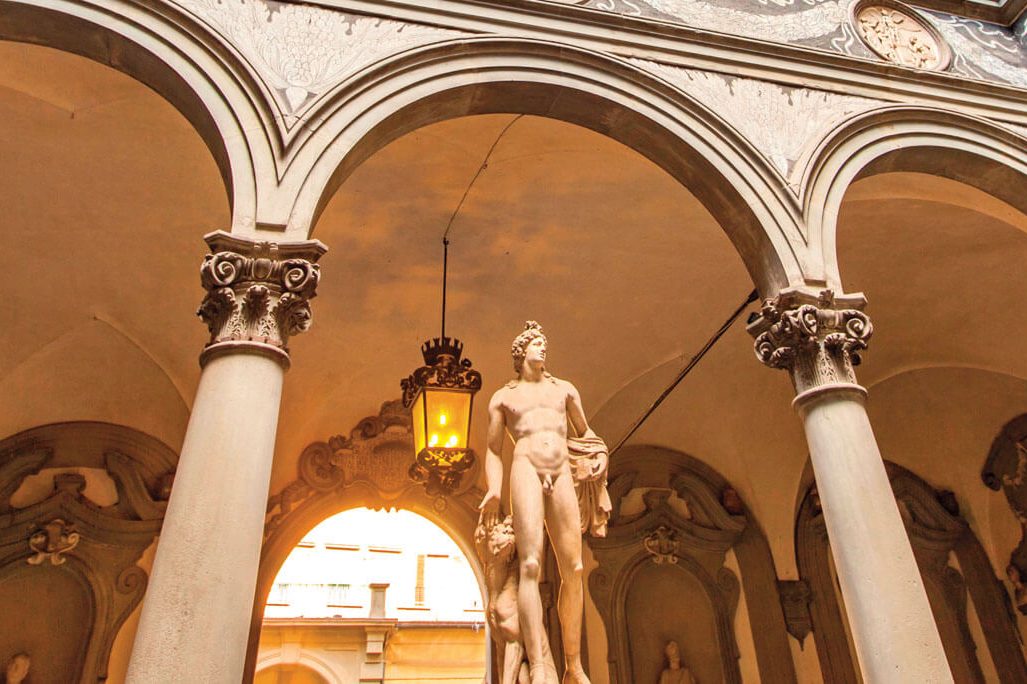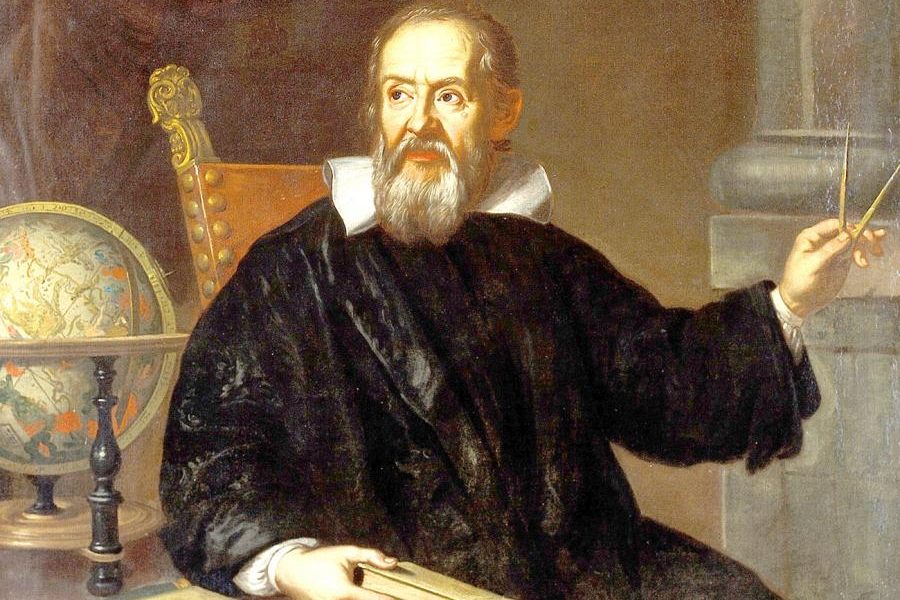Back in 1904 a poor young man by the name of Agostino Coppola left his Southern Italian hometown of Bernalda for good. Starting from this small village near Matera, in the Basilicata region, he went on to cross the Atlantic and to seek fortune in America. Today, a century later, Agostino’s descendants constitute one of the most influential families ever in the film industry, thus bringing their ancestor’s journey to completion, having conquered the United States thanks to art.
This is the story reconstructed by the Bernaldese actor Michele Russo in his recent documentary The Family Whistle. Mr. Russo, who also starred in The Godfather Part III and in Giuseppe Tornatore’s Baarìa, is a distant cousin to the famed director Francis Ford Coppola. It was a few years ago when, telling stories about their family and drinking wine together, the two of them came up with the idea of making a film out of the Coppolas’ fascinating history: as a matter of fact, the whole story resembled a fairy tale in some ways, with its plot full of characters and many sub-lines, but it also spoke about the too often forgotten millions of people who were forced to leave Italy out of poverty between the 19th and 20th centuries. Eventually, it was Russo who managed to realize this beautiful portrait of the Coppola family, recently screened at Bologna’s “Il Cinema Ritrovato”, after being premiered at the Boston International Film Festival (where it won a prize) and at Cannes.
Among the intertwined stories that encompass Russo’s years-long reconstruction of the Coppola family tree, the crucial one is probably that of Francis’ grandfather, the patriarch Agostino, who was known in his hometown as “Zumbabalcone” (“jump the balcony”) because, as a renowned ladies’ man, he used to spend the nights visiting his lovers by jumping from balcony to balcony. But most of all, Agostino is remembered as a creative, determined person, as demonstrated by his apprenticeship with Ciccio Panio, an almost legendary local mechanic, and especially by his musical passion and ability in playing the mandolin. Sure enough, even after he decided to leave that town he always called “Bernalda bella”, as if it was just one word, Agostino would often repeat to his sons in America: “Follow your path… but never lose the music inside you!”.
Many among the figures that populate the Coppola family tree are as picturesque as him: for example, Francis himself tells us about Agostino’s mother, Filomena “Senza Naso” (“without nose”), thus called because they had to cut her nose off after she contracted an infection. But as Mr. Russo interviews the more or less known living members of this family of filmmakers and musicians, great importance is given to the way in which Agostino managed to get his passion for art with him across the Atlantic and to pass it – somehow untouched – to the next generations, along with his Italian roots and traditions.
All of this is represented at best by the “family whistle” that gives this documentary its curious title: as a matter of fact, each family in Bernalda was identified, and still is identified to this day, by the use of a particular three-note whistle that discerns it from all the others, be it – from time to time – a warning message, a simple call to supper, and so on, depending on the pitch. Nowadays, it appears that this “family whistle”, and the traditional Italian musicality it represents, was definitely part of the baggage that Agostino had bequeathed to his sons. A brief look at the various Coppolas who became successful in the United States because of their musical talent confirms all of this: Anton Coppola, whom Francis calls “Uncle Kiki”, is a celebrated opera conductor and composer, while Carmine, Francis’ own father, was also a noted composer who contributed original music to his son’s best-known films.
The field in which the name of this family would always be best remembered, though, is undoubtedly cinema. Starting from Francis Ford Coppola’s worldwide-known masterpieces The Godfather and Apocalypse Now, one moves on to his nephew Nicolas Cage’s brilliant acting career, and then to his daughter Sofia Coppola’s success as a director, thus marking the third consecutive generation of Coppolas to have won an Academy Award. Yet another indication of how Italian Americans have contributed to the making of cinema history.
What Russo ultimately wants to convey with the realization of this brilliant documentary is how the “family whistle” of the Coppolas has managed to survive a long long way from Bernalda. Since Agostino left that town where his most famous descendant, Francis Ford Coppola, has now bought the historical Palazzo Margherita, that whistle has never stopped blowing: on the contrary, it continues to be listened on both sides of the Atlantic in the achievement of this talented Italian American family.





























